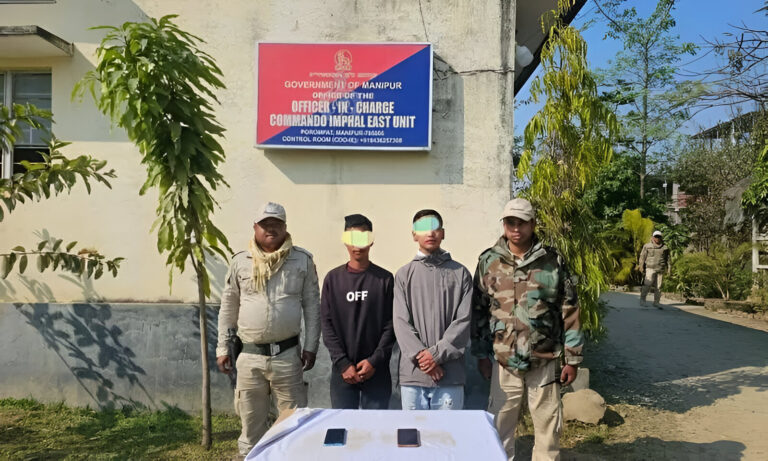Manipur Cybercrime Police Arrest Two for Spreading Fake School Holiday Order
The Cyber Crime Police Station in Manipur arrested two youths after a fake school-holiday notice, allegedly claiming the Directorate of Education (Schools) had declared September 18, 2025 a holiday for all schools, went viral on social media. An FIR was registered following a complaint from the Directorate, which then issued an official clarification denying the authenticity of the notice and asked officials and police to support the probe. Police say the two suspects were involved in creating and circulating the forged document; investigations are ongoing.
- A notice, apparently in the name of the Directorate of Education (Schools), circulated on social platforms claiming that all schools — government, central, private, aided and unaided — would be closed on September 18, 2025
- The Directorate of Education received complaints and immediately issued a formal clarification that no such holiday had been declared. The clarification was sent to the Commissioner of Education, Deputy Commissioners and the Superintendent of Police (Cyber Crime) to support an investigation.
- Based on the Directorate’s complaint, an FIR was registered alleging forgery and spreading of a fake order. Investigators traced the origin and arrested two youths for creating and circulating the document; further inquiries are underway.
- FAQs
Q1: Were the two people arrested the ones who created the fake notice or only forwarded it?
A1: Media reports state the Cyber Crime Police arrested two youths alleged to have created and circulated the forged order; the FIR was registered following a complaint from the Directorate of Education. The investigation is ongoing and the police will produce more details as they proceed.
Q2: What penalty can someone face for creating a fake government order in India?
A2: Depending on the evidence and charges, penalties can include provisions under the IPC for forgery (Sections 463–471), offences for causing public mischief (Section 505), and relevant sections of the IT Act for transmitting false information. Punishments vary with the severity and intent, and a court determines them after trial.
Q3: How can parents quickly verify whether a school holiday notice is genuine?
A3: Check the Directorate of Education’s official website or verified social channels, call the school’s registered phone number, or look for an SMS from the school’s official short-code. Avoid relying solely on forwarded messages.
Q4: Will casual forwarders be arrested for sharing the fake notice?
A4: Law enforcement tends to prioritize creators and deliberate spreaders of malicious content. Casual forwarders who share without malicious intent are typically treated differently, but investigators may still contact them for statements during inquiries. Context and intent matter.
Q5: What should authorities do to prevent similar incidents in future?
A5: Authorities should combine quick official clarifications with preventive measures: verified communication channels for schools, public digital-literacy campaigns, use of tamper-evident formats for circulars, and cooperation with platforms to rapidly limit viral spread.




